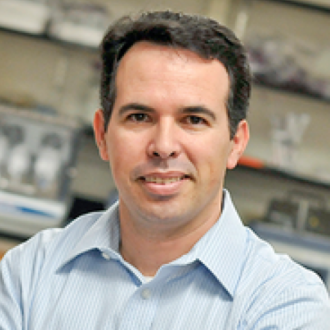Jorge Mazza Rodrigues
Biologist Faculty Scientist
Professor, UC Davis

Building: Plant and Environmental Sciences Building, Room 3308
Mail Stop: One Shields Avenue, Davis, CA 95616-8627
Phone: (530) 752-1130
Fax: (530) 752-1552
jmrodrigues@ucdavis.edu
https://soilecogenomicslabs.weebly.com/
https://microbiome.ucdavis.edu/people/jorge-rodrigues
Links
Biography
Jorge “George” Mazza Rodrigues is a professor in the Department of Land, Air, and Water Resources at University of California, Davis. He graduated at the top of his class with a degree in agronomical engineering from the University of Sao Paulo, Brazil, and earned dual PhD degrees from Michigan State University. He was recognized as a UC Davis Faculty Leadership Fellow in 2022 and is currently a member of the First-Generation Faculty Learning Community.
Research Interests
Research in Rodrigues’s laboratory lies at the interface of soil microbial genomics and ecology and focuses on sustainable solutions for biodiversity maintenance in tropical forests and agricultural fields under increased world food demand. He uses a combination of molecular and physiological experimental data to study microbial phylogenetic and functional diversification and their consequences for global biogeochemical cycles. Results from this work have broad implications from basic research in evolutionary biology and ecology to applied aspects, such as conservation policies for natural ecosystems.
Recent Publications
Related News
UC Davis, Berkeley Lab Team up to Advance Green Agriculture
Three University of California, Davis, Faculty Fellows have been awarded $25,000 each to spearhead cross-campus research projects with Berkeley Lab scientists in the field of agricultural decarbonization. With agricultural activities contributing over 10% of the United States’ total greenhouse gas emissions, the sector is a prime target for lowering emissions and addressing the climate crisis. The teams will explore innovative methods to remove and store excess carbon dioxide from the atmosphere—a practice known as carbon sequestration—and minimize energy consumption in crop production.



